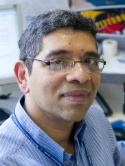Prolonged progression-free survival after consolidating second or later remissions of neuroblastoma with Anti-GD2 immunotherapy and isotretinoin: A prospective phase II study Journal Article
| Authors: | Kushner, B. H.; Ostrovnaya, I.; Cheung, I. Y.; Kuk, D.; Kramer, K.; Modak, S.; Yataghene, K.; Cheung, N. K. V. |
| Article Title: | Prolonged progression-free survival after consolidating second or later remissions of neuroblastoma with Anti-GD2 immunotherapy and isotretinoin: A prospective phase II study |
| Abstract: | Relapse of high-risk neuroblastoma (HR-NB) is deemed invariably fatal yet increasing numbers of HR-NB patients achieve a second complete/very good partial remission (CR/VGPR), hence the urgency to find a successful consolidative therapy. Identifying efficacy in patients without assessable disease, however, is problematic. We report the first study providing outcome data for this group of patients with poor prognosis. To prevent another relapse, HR-NB patients in second or later CR/VGPR received the anti-GD2 murine antibody 3F8 plus granulocyte-macrophage colony-stimulating factor plus isotretinoin in a Phase II trial. Upon meeting the target aim for progression-free survival (PFS) in the initial cohort of 33 patients, the trial was amended to allow patients who developed human anti-mouse antibody (HAMA) to receive rituximab to ablate HAMA with or without low-dose maintenance chemotherapy until immunotherapy could resume. For the total of 101 study patients, 5-year PFS and overall survival (OS) rates were 33% ± 5% and 48% ± 5%, respectively. Among the 33 long-term progression-free survivors, 19 had MYCN amplification, 19 had previously received anti-GD2 immunotherapy plus isotretinoin (as first-line therapy), and 15 never received maintenance chemotherapy. In a multivariate analysis of prognostic factors, only absence of minimal residual disease in bone marrow after 2 cycles of immunotherapy and before initiation of isotretinoin or anti-HAMA therapy was significantly favorable for both PFS and OS. Therefore, long-term PFS is possible for HR-NB patients who achieve at least a second CR/VGPR and receive consolidation that includes anti-GD2 immunotherapy plus isotretinoin, even if the patients received these biological treatments before relapse. Results from this prospective study will aid in the development of future Phase II studies for this growing ultra high-risk patient population. © 2015 Taylor & Francis Group, LLC. |
| Keywords: | immunotherapy; minimal residual disease; salvage; anti-gd2 antibody; second remission |
| Journal Title: | OncoImmunology |
| Volume: | 4 |
| Issue: | 7 |
| ISSN: | 2162-4011 |
| Publisher: | Landes Bioscience |
| Date Published: | 2015-07-01 |
| Start Page: | e1016704 |
| Language: | English |
| DOI: | 10.1080/2162402x.2015.1016704 |
| PROVIDER: | scopus |
| PMCID: | PMC4485744 |
| PUBMED: | 26140243 |
| DOI/URL: | |
| Notes: | Export Date: 2 November 2015 -- Source: Scopus |
Altmetric
Citation Impact
BMJ Impact Analytics
MSK Authors
Related MSK Work











